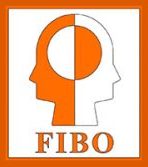ผลงานด้านการพัฒนาประสิทธิภาพในกระบวนการผลิต
ผลงานด้านการพัฒนาประสิทธิภาพในกระบวนการผลิต

โครงงานหุ่นยนต์จัดเก็บหางเหล็ก (Crop Collector system)
ฟีโบ้ได้ร่วมมือกับบริษัท เหล็กสยามยามาโตะ จำกัด ในการริเริ่มโครงการออกแบบและจัดสร้างหุ่นยนต์อัตโนมัติรวมทั้งพัฒนาระบบหุ่นยนต์อุตสาหกรรมขนาดใหญ่ เพื่อใช้ในสายการผลิตเหล็กรูปพรรณ (H.I.C) โดยพัฒนาหุ่นยนต์ขนาดใหญ่ให้สามารถเก็บหางเหล็กน้ำหนัก300กิโลกรัม ความยาว 500-2,000 มิลลิเมตร ความร้อนสูง 900 องศาเซลเซียส ออกจากสายพานการผลิตในเวลา 10 วินาที นำไปทิ้งภายในเวลา 50 วินาที การจัดสร้างหุ่นยนต์ดังกล่าวทำให้สามารถเดินเครื่องการผลิตเหล็กได้อย่างเต็มกำลัง ตลอดจนเพิ่มผลผลิตให้กับบริษัทได้ตามต้องการ

โครงการหุ่นยนต์หยิบยางแท่งแบบอัตโนมัติ (Auto Rubber Loading Machine: ARM)
กระบวนการผลิตยางแท่งปัจจุบันใช้แรงงานคนดึงยางแท่งออกจากกระบะ เมื่อทำงานเป็นเวลานานคนงานจะเกิดความเมื่อยล้า ทางทีมงานจึงได้ทำการวิจัย ออกแบบและสร้างหุ่นยนต์ขึ้นเพื่อนำมาใช้ทดแทนแรงงานคน โดยทางทีมงานได้วิจัยและสร้างหุ่นยนต์ที่มีหัวจับยางแท่งได้ครั้งละห้าหัว เคลื่อนที่ได้ทั้งในแนวระนาบและแนวดิ่ง โดยสามารถหยิบยางแท่งและนำไปวางบนสายพานเพื่อเข้าสู่กระบวนการผลิตขั้นต่อไป

โครงการเครื่องเชื่อมอัตโนมัติ 2 แกน (Automatic System for Part Assembly)
บริษัท ออโต ซัมมิทบอร์ดี้ ได้ร่วมมือกับทางฟีโบ้ ในการทำวิจัยและพัฒนาร่วมกันโดยได้นำเอาเทคโนโลยีระบบการผลิตแบบอัตโนมัติมาใช้ในการออกแบบและจัดสร้างระบบประกอบชิ้นส่วนอัตโนมัติ ซึ่งจะนำไปใช้ในงานการเชื่อมแบบจุด (Spot welding) ของการผลิตชิ้นส่วนรถยนต์

โครงการจัดสร้างระบบอัตโนมัติเพื่อใช้เป็นส่วนประกอบในการผลิตอุปกรณ์ที่พักของชุดหัวอ่าน Hard Disk Drive (RAMP)
บริษัท เอ็นโอเค พรีซิชั่น คอมโพเนนท์ (ประเทศไทย) จำกัด ผู้ผลิตอุปกรณ์ที่มีความละเอียดสูงเพื่อนำไปใช้ในชุดเก็บข้อมูลของคอมพิวเตอร์ (Hard Disk Drive) ที่มีชื่อเสียงชั้นนำของประเทศไทยได้มีการวางแผนเพิ่มอัตราการผลิตอุปกรณ์ที่พักของชุดหัวอ่าน Hard Disk Drive (RAMP)เป็นสองเท่าของอัตราการผลิตเดิมเพื่อตอบสนองต่อความต้องการสินค้าของลูกค้า ทั้งนี้ได้วางใจให้สถาบันวิทยาการหุ่นยนต์ภาคสนาม (ฟีโบ้) จัดสร้างระบบอัตโนมัติเพื่อใช้เป็นส่วนประกอบในการผลิตอุปกรณ์ที่พักของชุดหัวอ่าน Hard Disk Drive (RAMP) โดยมีขอบข่ายของงานคือ
1.ศึกษาและออกแบบผังรวมของระบบที่จัดสร้างขึ้น
2. ออกแบบโครงสร้างและระบบทางกลของระบบ
3.ออกแบบระบบควบคุมและระบบติดต่อกับผู้ใช้งาน
4. ควบคุมการจัดสร้าง ประกอบ และทดสอบการทำงานของระบบ

โครงการระบบการอ่านและวิเคราะห์ค่าแรงบิดจากเครื่อง HIOKI Wave comparator
บริษัทมินิแบร์(ประเทศไทย)จำกัด ผู้ผลิตอุปกรณ์อิเล็กทรอนิกส์และเครื่องจักรกลที่มีความแม่นยำสูงให้กับอุตสาหกรรมคอมพิวเตอร์ ได้เล็งเห็นถึงความสำคัญในการนำข้อมูลจากการตรวจสอบ Ball bearing มาวิเคราะห์ประสิทธิภาพในกระบวนการผลิต ทางบริษัทจึงร่วมมือกับทางฟีโบ้พัฒนาระบบการอ่านและการวิเคราะห์ค่าแรงบิดโดยใช้ข้อมูล Max, Min, Average และ Peak-to-Peak ของข้อมูลที่วัดได้ ผลการวิเคราะห์ที่ได้รับจะบ่งชี้ถึงข้อบกพร่องในกระบวนการผลิต โครงการแบ่งออกเป็น 2 แผนงานหลัก โดยแผนงานแรกจะเป็นการเชื่อมต่อข้อมูลของเครื่อง Wave comparator และการออกแบบจัดวางเครือข่ายเครื่อง Wave comparator จำนวน 150 เครื่อง โดยมี Server กลางเก็บข้อมูลทั้งหมด และแผนงานที่สอง เป็นการออกแบบและจัดทำโปรแกรมการวิเคราะห์ข้อมูลเชิงสถิติ

โครงการออกแบบและสร้างต้นแบบสายการผลิตอัตโนมัติเพื่อการผลิต HSA.
โครงการนี้ครอบคลุมการดำเนินการทั้งการออกแบบและการสร้างต้นแบบของสายการประกอบ HAS แบบกึ่งอัตโนมัติ โดยเป็นการออกแบบที่เน้นการใช้ชุดอุปกรณ์จากระบบ Manual เดิมที่ใช้อยู่ มาทำการจัดเข้าชุดเป็นโมดูล ซึ่งมีระบบสายพานส่งงานไปตามเครื่องจักรตามลำดับขั้นตอนของสายการผลิต HSA ทุกขั้นตอน โดยเครื่องจักรสำหรับแต่ละกระบวนการถูกออกแบบให้อยู่ในลักษณะของ Generic Cell เพื่อให้เกิดความสะดวกต่อการบำรุงรักษา ลักษณะของ Automation Line โดยเป็นความร่วมมือกันระหว่าง WD, NECTEC, FIBO, และบริษัท SMEs 4 บริษัท ซึ่ง SMEs เหล่านี้ทำงานร่วมกันภายใต้ชื่อ TH-Alliance ภายใต้วัตถุประสงค์คือ
– สำหรับ WD เป็นการสร้างองค์ความรู้ในการสร้างเครื่องจักรและระบบอัตโนมัติที่ครอบคลุมกระบวนการผลิตทั้งหมดของ HSA สำหรับ Hard disk ขนาด 2.5 นิ้ว และสามารถปรับปรุง/พัฒนาให้เหมาะสมกับผลิตภัณฑ์ใหม่ๆ ในอนาคตได้
– สำหรับ NECTEC เป็นการช่วยส่งเสริมอุตสาหกรรมในประเทศ ให้มีบุคลากรที่มีความรู้ความสามารถด้านการผลิตชิ้นส่วนที่ความละเอียดและความแม่นยำสูง ซึ่งเป็นการส่งเสริมการถ่ายโอนเทคโนโนาบุคลากรของบริษัทให้เข้ามามีส่วนร่วมในการวิจัยและพัฒนา ซึ่งต่อไปบุคลากรเหล่านี้จะเป็นกลุ่มคนสำคัญของบริษัทในการวิจัยและพัฒนาเครื่องจักรให้เหมาะสมกับผลิตภัณฑ์ของบริษัทต่อไปเกิดการเผยแพร่และถ่ายโอนเทคโนโลยีด้านการผลิตชิ้นส่วน Hard Disk ในแวดงวอุตสาหกรรมของไทย รวมถึงนักวิชาการและวิศวกรชาวลยีจากต่างประเทศและจากสถาบันการศึกษาเข้าสู่อุตสาหกรรมในประเทศอีกทางหนึ่งสำหรับมหาวิทยาลัย เป็นการสร้างบุคลกร ให้มีความรู้และความเข้าใจในการสร้างเครื่องจักรสำหรับการสร้างชิ้นส่วนที่ความละเอียดและแม่นยำสูง และเข้าใจกระบวนการเขียนชุดคำสั่งควบคุมเครื่องจักรให้มีมาตรฐานเทียบเท่าต่างประเทศ สำหรับบริษัท SMEs ต่างๆ ที่เข้าร่วมโครงการ เป็นการพัฒไทย

โครงการพัฒนาระบบลำเลียงอุปกรณ์เก็บตัวอย่างละอองฝุ่นในอากาศจากสถานีเสาสูงตรวจอากาศเพื่อนำมาวิเคราะห์สภาพภูมิอากาศในเขตเมือง
สถาบันสารสนเทศทรัพยากรณ์น้ำและการเกษตร (สสนก.) มีความต้องการในการสำรวจฝุ่นละอองในอากาศเพื่อศึกษาข้อมูลเชิงลึกสำหรับงานอุตุนิยมของประเทศไทย โดยการเก็บตัวอย่างฝุ่นจากอุปกรณ์ที่ถูกติดตั้งไว้บนเสาสูง โดยผู้ปฎิบัติงานต้องนำอุปกรณ์เก็บตัวอย่างฝุ่นลงมาเพื่อนำมาทำการวิเคราะห์ที่ภาคพื้นดิน ซึ่งในการเคลื่อนย้ายอุปกรณ์ระหว่างเสาสูงและภาคพื้นดินเป็นงานที่มีความเสี่ยงสูงต่อการเกิดอันตราย ทั้งต่อผู้ปฏิบัติงานและอุปกรณ์ สถาบันวิทยาการหุ่นยนต์ภาคสนาม จึงนำเทคโนโลยีการขนส่งแนวดิ่งสูงที่มีอยู่ในปัจจุบันมาประยุกต์ใช้ โดยดำเนินการออกแบบระบบลำเลียงอุปกรณ์เก็บตัวอย่างฝุ่นในอากาศ ซึ่งมีรูปแบบที่เป็นระบบที่มีการเคลื่อนที่ในแนวดิ่ง คล้ายการทำงานของรอกในระบบลิฟท์ขนส่ง สำหรับทำงานทดแทนการทำงานของผู้ปฎิบัติงาน เพื่อช่วยให้ผู้ปฎิบัติงานทำงานได้สะดวกและรวดเร็วขึ้น ในการเก็บข้อมูลเพื่อนำผลที่ได้จากการเก็บตัวอย่างละอองฝุ่น มาทำการวิเคราะห์ต่อไป

โครงการพัฒนา Mobile Platform ของ AGV ต้นแบบ
สถาบันวิทยาการหุ่นยนต์ภาคสนาม ได้รับดำเนินการพัฒนา Mobile Platform ของ AGV ต้นแบบสำหรับนำไปใช้ในกระบวนผลิตของโรงงานอุตสาหกรรม โดยโครงการเป็นการพัฒนาโครงสร้างการขับเคลื่อนพื้นฐานของ AGV ต้นแบบ สำหรับใช้ในงานขนส่งชิ้นงานภายในโรงงานแบบปิด รวมถึงการพัฒนาซอฟแวร์ระบบนำทางและระบบควบคุมการเคลื่อนที่ของ AGV ให้สามารถเคลื่อนที่เพื่อขนส่งชิ้นงานไปตามสถานีต่างๆ ของสายการผลิตโดยอัตโนมัติ

โครงการออกแบบฉนวนโฟมรองท่อแบบอัตโนมัติ
บริษัท แอร์โรเฟลกซ์ จำกัด มีการใช้เครื่องตัดฉนวนโฟมรองท่อซึ่งต้องใช้ความสามารถของผู้ปฎิบัติงานค่อนข้างสูงและปัจจุบันหาแรงงานได้ยาก ทางบริษัทจึงมีความต้องการที่จะพัฒนาและประยุกต์ใช้ระบบอัตโนมัติขั้นทดแทน จึงให้ทางสถาบันฯ ดำเนินการศึกษาและออกแบบระบบตัดฉนวนโฟมรองท่อแบบอัตโนมัติ เพื่อใช้ในกระบวนการตัดฉนวนโฟมรองท่อให้มีขนาดที่แม่นยำและมีความยืดหยุ่นต่อชิ้นงานที่หลากหลาย อีกทั้งต้องการให้ระบบที่ออกแบบสามารถใช้งานได้ง่ายยิ่งขึ้น เพื่อช่วยให้การผลิตมีกำลังการผลิตที่มากขึ้นและสามารถควบคุมคุณภาพของผลิตภัณฑ์ให้ตรงตามมาตรฐานของการผลิตชิ้นงาน เพื่มความสามารถในการผลิตและลดความยุ่งยากของการปฎิบัติงานให้ง่ายขึ้น

โครงการออกแบบและพัฒนาสายการผลิตระบบจัดเรียงอาหารกระป๋อง
บริษัท ยูนิคอร์ด จำกัด (มหาชน) มีความต้องการในการปรับปรุงระบบกระบวนการผลิตเพื่อเพิ่มประสิทธิภาพและลดการใช้แรงงานคน เพื่อแก้ปัญหาการขาดแคลนแรงงาน ลดความผิดพลาดและลดต้นทุนในการผลิตมาโดยตลอด ซึ่งกระบวนการจัดเรียงอาหารกระป๋องนั้นนั้นเป็นหนึ่งในกระบวนการที่ยังต้องใช้แรงงานคนอยู่ การนำหุ่นยนต์แต่เพียงอย่างเดียวมาใช้งานนั้น อาจลดแรงงานคนได้จริงแต่ต้นทุนสำหรับการลงทุนนั้นสูงมากจึงไม่คุ้มค่าต่อการลงทุน
ด้วยความต้องการที่กล่าวมาข้างต้นทางสถาบันวิทยาการหุ่นยนต์ภาคสนาม ซึ่งมีความรู้ความเชี่ยวชาญในเรื่องของหุ่นยนต์ และระบบอัตโนมัติ จึงได้เสนอแนวความคิดในการออกแบบสายการผลิตระบบจัดเรียงอาหารกระป๋องโดยลดการใช้หุ่นยนต์แขนกลขนาดใหญ่ซึ่งมีราคาแพงลง แต่ใช้กลไกช่วยในการลำเลียงและจัดเรียงอาหารกระป๋องเพื่อให้ระบบสามารถทำงานได้อย่างมีประสิทธิภาพและมีต้นทุนที่ต่ำกว่าระบบที่นำเข้ามาจากต่างประเทศ หรือระบบที่ใช้หุ่นยนต์แต่เพียงอย่างเดียว เพื่อให้มีความเหมาะสมและคุ้มค่าต่อการลงทุน

โครงการสร้างเครื่องตัดเนื้อด้วยน้ำแรงดันสูง
มหาวิทยาลัยเทคโนโลยีพระจอมเกล้าธนบุรี ได้มีความร่วมมือกับ บมจ.ซีพีเอฟ (ประเทศไทย) ซึ่งส่วนหนึ่งของความร่วมมือนี้ ทาง บมจ.ซีพีเอฟ (ประเทศไทย) ให้ความสนใจในการนำระบบอัตโนมัติมาใช้ในการพัฒนาประสิทธิภาพกระบวนการผลิตของบริษัทฯ และประกอบกับให้ความไว้วางใจในศักยภาพของสถาบันวิทยาการหุ่นยนต์ภาคสนาม (FIBO) จึงมอบหมายให้ดำเนินงานในการพัฒนาต้นแบบระบบอัตโนมัติสำหรับนำไปใช้ในกระบวนการผลิตของ CPF เพื่อเพิ่มประสิทธิภาพการผลิตที่สูงขึ้น ช่วยลดความสูญเสียด้านบุคลากร เวลา และงบประมาณในการจัดซื้อเครื่องจักรที่มีราคาสูง อันนำไปสู่การลดต้นทุนการผลิตโดยรวมของบริษัทฯ และส่งผลให้บริษัทฯ มีศักยภาพในการแข่งขันด้านอุตสาหกรรมมากยิ่งขึ้น
